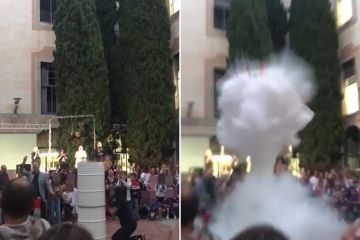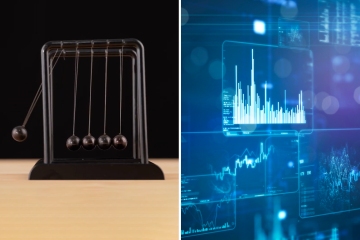RESEARCHERS have been getting a closer look at the phenomenon known as déjà vu.
For decades, the phenomenon of déjà vu has been shrouded in mystery – scientists can explain it, but not why it occurs.
What is Deja VU exactly?
The word déjà vu, French for ‘already seen’, describes when a person feels like they have experienced the same exact situation before.
Dr. Akira O’Connor, a senior psychology lecturer at the University of St Andrews, says that déjà vu is not only a feeling of familiarity but also the metacognitive recognition that these feelings are misplaced.
“Déjà vu is basically a conflict between the sensation of familiarity and the awareness that familiarity is incorrect,” Dr. O’Connor told Science Focus.


“And it’s the awareness that you’re being tricked that makes déjà vu so unique compared to other memory events,” he explains.
These theories
From as early as the late 1800s, many theories have surrounded why déjà vu occurs.
It could be due to neurological or mental disorders.
Some people believe it was due a temporary disruption in normal memory function.
The science community began to dissect the phenomenon only recently.
Studies have determined that roughly two-thirds of people experience déjà vu at some point in their lives.
Experts have also suggested that the most common trigger of déjà vu is a scene or place, followed by conversation.
Most recently, Anne Cleary, Professor of Cognitive Psychology at Colorado State University, and a team of researchers investigated whether déjà vu can happen when there’s a resemblance between a current scene and an unrecalled scene in a person’s memory.
These are the findings
“Imagine you’re passing the nursing station in a hospital unit on your way to visit a sick friend. Although you’ve never been to this hospital before, you are struck with a feeling that you have,”Cleary writes.
“The underlying cause for this experience of déjà vu could be that the layout of the scene, including the placement of the furniture and the particular objects within the space, have the same layout as a different scene that you did experience in the past.”
Cleary used virtual reality to further test the theory.
The researchers were able to manipulate virtual reality (VR) environments that people believed they were experiencing.
Cleary pointed out that some scenes had the same layout, but were unique in other ways.
After reviewing the results, she found that déjà vu was more likely to happen when people were in a scene that feature a similar spatial arrangement as an earlier scene they viewed but didn’t recall.
“This research suggests that one contributing factor to déjà vu can be the spatial resemblance of a new scene to one in memory that fails to be consciously called to mind at the moment,”Cleary said.
“However, it does not mean that spatial resemblance is the only cause of déjà vu,”She added.
“Very likely, many factors can contribute to what makes a scene or a situation feel familiar.”
Cleary said that more research is currently underway to investigate additional possible factors surrounding déjà vu.
In an article she discusses the team’s findings. The Conversation.



